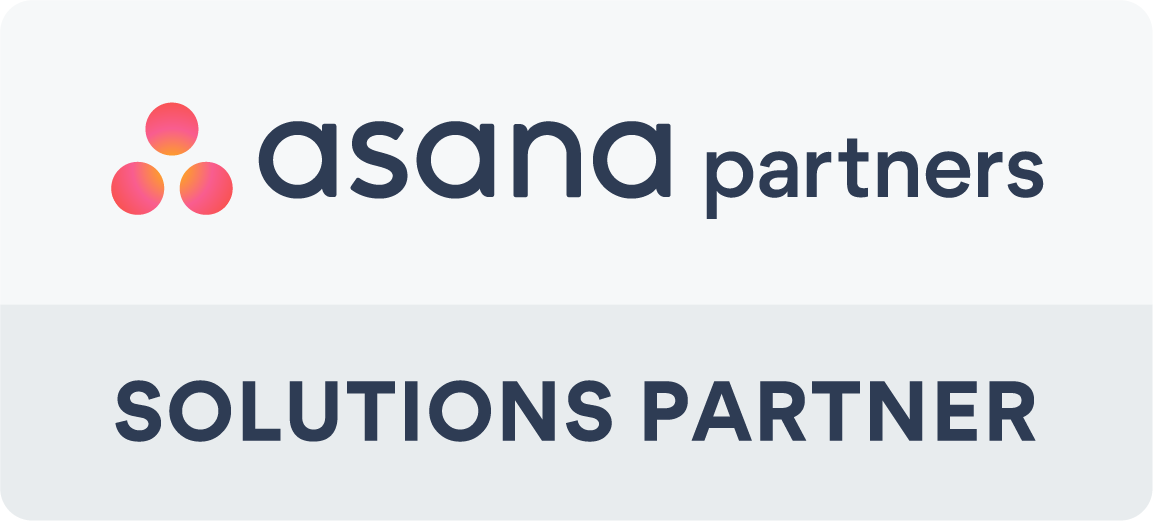Agile methodology has revolutionised project management, offering a dynamic and flexible approach that emphasises collaboration, customer feedback, and iterative progress. This methodology is prevalent in software development but has applications across various industries. In this piece, we will delve into the history of agile methods, explore its core principles, and examine how it is utilised in modern businesses to enhance project outcomes.
The History of Agile Methodology
The roots of agile methodology can be traced back to the early 1990s when software developers started seeking alternatives to the traditional, rigid project management methods like the Waterfall model. The need for a more flexible and adaptive approach led to the creation of various lightweight methodologies. However, it wasn't until the early 2000s that agile gained widespread recognition.
In 2001, seventeen software developers met at a ski resort in Snowbird, Utah, and formulated the Agile Manifesto. This manifesto outlined four core values and twelve principles that define agile methodology. The Agile Manifesto has since become the cornerstone of agile project management, guiding countless teams in delivering high-quality products efficiently and effectively.
Core Principles of Agile Methodology
Agile methodology in project management is built upon four core values:
- Individuals and Interactions over Processes and Tools: Agile emphasises the importance of communication and collaboration among team members, promoting a culture of teamwork and mutual support.
- Working Software over Comprehensive Documentation: While documentation is essential, agile prioritises delivering functional software that meets customer needs.
- Customer Collaboration over Contract Negotiation: Agile encourages ongoing customer collaboration to ensure the final product meets their expectations and requirements.
- Responding to Change over Following a Plan: Agile methodology embraces change, allowing teams to adapt to new information and evolving project needs.
These values are supported by twelve principles, including customer satisfaction through continuous delivery, welcoming changing requirements, delivering working software frequently, and maintaining a sustainable work pace.
Agile in Project Management: Methodologies and Frameworks
Agile in project management encompasses various methodologies and frameworks designed to implement its principles. The most popular ones include Scrum, Kanban, Lean, and Extreme Programming (XP).
Scrum
Scrum is one of the most widely used agile project management methodologies. It involves breaking down the project into small, manageable units called sprints, typically lasting two to four weeks. Each sprint focuses on delivering a potentially shippable product increment. Scrum roles include the Product Owner, Scrum Master, and Development Team, each with specific responsibilities to ensure the project's success.
Kanban
Kanban is another popular agile project methodology focusing on visualising work, limiting work in progress, and optimising flow. It uses a Kanban board to represent tasks and their progress, enabling teams to identify bottlenecks and improve efficiency. Kanban is particularly effective in environments where work arrives unpredictably.
Lean
Lean methodology, derived from manufacturing principles, maximises value by eliminating waste and improving processes. Lean emphasises continuous improvement, customer value, and respect for people. In project management, lean principles help teams deliver faster and more efficiently.
Extreme Programming (XP)
Extreme Programming (XP) is an agile project management methodology focusing on technical excellence and customer satisfaction. It involves pair programming, test-driven development, and continuous integration to ensure high-quality software delivery. XP is particularly effective in environments requiring frequent releases and high adaptability.
The Role of Agile Project Management Tools
Teams often rely on various project management tools to effectively implement agile methodology. These tools facilitate collaboration, track progress, and provide insights into project performance. Notable platforms include Asana, Monday.com, Wrike, and Jira.
Asana
Asana is a versatile project management tool that supports agile project management through features like task tracking, project timelines, and team collaboration. Its user-friendly interface and customisable workflows suit teams of all sizes. Asana enables teams to plan, organise, and track their work effectively, ensuring projects stay on track and meet deadlines.
Monday.com
Monday.com offers a flexible and visual platform for managing agile projects. Its customisable boards, timelines, and automation features allow teams to adapt the tool to their specific workflows. Monday.com supports agile methodologies by providing real-time collaboration, progress tracking, and reporting capabilities, helping teams stay aligned and productive.
Wrike
Wrike is a powerful project management tool that combines task management, collaboration, and reporting features. It supports agile project management through customisable workflows, Gantt charts, and real-time updates. Wrike's robust features help teams plan, execute, and monitor projects efficiently, ensuring timely delivery and high-quality results.
Jira
Jira is a leading tool for agile project management and is particularly popular in software development. It offers extensive support for Scrum, Kanban, and other agile methodologies. Jira's features include backlog management, sprint planning, and detailed reporting, enabling teams to track progress, identify issues, and continuously improve their processes.
Agile Project Management Methodology in Modern Businesses
Agile project management methodology has become a cornerstone for many modern businesses, enabling them to navigate the complexities of today's fast-paced market environment. Let's explore how some organisations leverage agile to achieve success.
Software Development
Agile project management is particularly prevalent in software development. Companies like Spotify, Microsoft, and Google use agile methodologies to deliver high-quality software products efficiently. By embracing agile principles, these organisations can quickly adapt to changing market demands, incorporate customer feedback, and release updates frequently.
For instance, Spotify employs a unique agile framework called the Spotify Model, which combines Scrum and Lean elements. This model emphasises autonomous squads, tribes, chapters, and guilds, promoting organizational collaboration and innovation. By leveraging agile, Spotify can continuously improve its platform, offering users a seamless and personalised music experience.
Marketing
Agile project management is also gaining traction in marketing departments. With the need for rapid campaign launches, real-time analytics, and iterative strategies, agile provides a flexible approach to managing marketing projects. Companies like IBM and HubSpot use agile methodologies to streamline their marketing efforts, improve collaboration, and deliver impactful campaigns.
HubSpot, for example, employs Scrum in its marketing teams to manage projects such as content creation, social media campaigns, and product launches. By adopting agile, HubSpot can respond quickly to market trends, optimise its strategies, and deliver high-quality content that resonates with its audience.
Manufacturing
Agile project management is not limited to software and marketing; it also finds applications in manufacturing. Companies like Toyota and General Electric (GE) have adopted agile principles to improve production processes, reduce waste, and enhance product quality.
Toyota, a pioneer of Lean manufacturing, integrates agile methodologies to create a more responsive and efficient production system. By focusing on continuous improvement and eliminating waste, Toyota can deliver high-quality vehicles while minimising costs and maximising customer satisfaction.
Healthcare
The healthcare industry is increasingly recognising the benefits of agile project management. Hospitals, clinics, and healthcare providers use agile methodologies to enhance patient care, streamline operations, and implement innovative solutions.
For instance, Kaiser Permanente, one of the largest healthcare providers in the United States, employs agile principles to improve patient outcomes and operational efficiency. By adopting agile, Kaiser Permanente can quickly adapt to changing healthcare regulations, implement new technologies, and provide better care to its patients.
Challenges and Benefits of Agile Project Methodology
While agile project methodology offers numerous benefits, it also has challenges. Let's explore some key advantages and potential obstacles associated with agile project management.
Benefits
- Flexibility and Adaptability: Agile allows teams to respond quickly to changing requirements, ensuring the final product meets customer needs.
- Improved Collaboration: Agile emphasises communication and collaboration, fostering a culture of teamwork and shared responsibility.
- Continuous Improvement: Agile promotes regular feedback and iterative progress, enabling teams to refine their processes and continuously deliver high-quality products.
- Customer Satisfaction: Agile ensures customer needs and expectations are met by involving them throughout the project, leading to higher satisfaction.
- Faster Time to Market: Agile methodologies enable frequent releases and incremental improvements, reducing time to market and providing a competitive edge.
Challenges
- Cultural Resistance: Transitioning to agile requires a cultural shift, and some organisations may face resistance from employees accustomed to traditional project management methods.
- Scope Creep: Agile's flexibility can sometimes lead to scope creep, where project requirements expand beyond the initial plan.
- Resource Management: Agile requires dedicated and cross-functional teams, which can be challenging to assemble and manage.
- Consistency: Maintaining consistency across teams and projects can be difficult, especially in large organisations with diverse workflows.
- Measurement of Success: Defining and measuring success in agile projects can be complex, as traditional metrics may not always apply.
Conclusion
Agile project management methodology has transformed how organisations approach their projects, offering a flexible, collaborative, and customer-centric framework. By understanding the history, principles, and various agile methods, businesses can harness its benefits to improve their project outcomes. The use of agile project management tools like Asana, Monday.com, Wrike, and Jira further enhances the efficiency and effectiveness of agile teams.
Collaboration Work Management Asana Project Management Workflow Agile Agile Project Management



